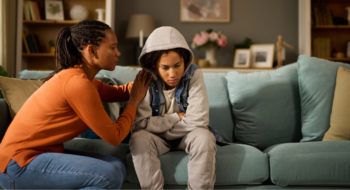It may be hard to talk about, but a waning sex drive is not uncommon in menopausal and post-menopausal women. The good news is that help is available.
While some women may think a loss of sex drive is just part of aging and something they have to accept, that’s not necessarily the case. There are strategies that work on both mind and body to help women increase or maintain that desire.
“It’s a problem that typically comes up in their annual physical exam. Little do they know that there are so many ways we can help women manage a decreased libido,” says Ashley Miller, a family nurse practitioner at Tidelands Health OB/GYN at Georgetown.
She says talking about your concerns with your partner is the beginning to finding an answer.
“First, be open with your partner about your desires and concerns,” she says. “Maintaining a healthy sexual relationship is key to a reduction of sexual problems.”
A visit to your OB/GYN can help unravel the cause or causes of decreased sex drive. Menopausal women typically undergo a loss of estrogen and testosterone and changes in the vaginal and urinary tracts that can cause irritation, vaginal dryness and pain during intercourse.
Miller says a woman’s physical and mental health should be evaluated, which can help optimize the effects of treatment. Numerous other factors can affect sexual desire including sleep disturbances, depression or anxiety, bladder control problems, stress and medications.
Besides physical changes, women at mid-life may be dealing with other factors that affect sexual drive such as the stress of jobs and caring for aging parents.
Once the origin of the problem is found, treatment can include use of lubricants, counseling, lifestyle changes, novelty play and a referral to a pelvic physical therapist who can help treat disorders of the pelvic area, such as urinary incontinence, that can result in a reduced desire for sex.
Hormonal agents are another option.
“Oral and topical hormonal agents along with antidepressant treatment are considered as well,” says Miller.
She emphasized the loss of sex drive can be complex and multi-faceted. It is important not to be afraid to bring up the topic with your care provider.
“This is a highly common problem that’s discussed very little by patients and providers,” she says. “I always incorporate it in my health assessments due to the importance of the issue and for the well-being of my female patients.”
Enjoy this story? It’s free to republish. Learn more.

Ashley Miller
Family Nurse Practitioner, Tidelands Health OB/GYN at Georgetown
Medical Education
Education
South University






